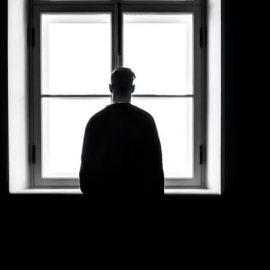

This article is an excerpt from the Shortform book guide to "The Power Elite" by C. Wright Mills. Shortform has the world's best summaries and analyses of books you should be reading.
Like this article? Sign up for a free trial here.
What tactics do conservative intellectuals use to combat their ideological opponents? What’s their relationship with America’s power elite?
C. Wright Mills suggests that the majority of American intellectuals fail to acknowledge, question, or challenge the rule of the power elite. This has taken power away from the American people by depriving them of their ability to understand what’s going on in government.
Let’s take a look at what Mills has to say about conservative intellectuals in particular.
Conservative Intellectuals
Mills explains that, in post-war America, the rule of the power elite has left many middle-class Americans perceiving a loss in status or influence. Instead of recognizing the power elite as the true cause of this, though, conservative intellectuals and politicians channel these middle-class frustrations into attacks on specific individuals, institutions, and symbols of status within government. To this end, they ignore government norms and conventions, publicly and privately persecute their enemies, and seek power for themselves and their allies by any means necessary. (It’s important to note that Mills also points a finger at post-war liberal intellectuals.)
The most obvious example of this sort of behavior at the time is a campaign of unfounded personal attacks and accusations led by Wisconsin senator Joseph McCarthy in the 1950s. McCarthy made a number of very public accusations, often claiming other members of the government were communists or homosexuals with little to no evidence. This behavior fits Mills’s definition above: It channeled broader social frustrations onto specific individuals, defied congressional conventions, and was done in part for fame and power.
| The Petite Bourgeoisie and Right-Wing Movements Mills actually defines the conservative voter base more precisely than simply the middle-class. He identifies them as the petite bourgeoisie, a Marxist term referring to the social class between large-scale capitalists and wage workers. This class includes people like small business owners, self-employed tradespeople, and others of middling wealth who can operate semi-independent of large capital. According to Marxism, the petite bourgeoisie is in a precarious position—capitalism allows them to maintain the wealth they have, but also leads to the concentration of wealth that will eventually force them into the lower class. A lot of Marxist and socialist scholarship (some of which Mills cites) claims that when the position of the petite bourgeoisie is particularly threatened, they often adopt far-right ideologies. This allows them to channel the frustrations of their precarious position at specific elites, minority groups, or segments of society without having to admit that the capitalist system as a whole—the system they associate with their wealth—is the real reason why their social position is threatened. |

———End of Preview———
Like what you just read? Read the rest of the world's best book summary and analysis of C. Wright Mills's "The Power Elite" at Shortform.
Here's what you'll find in our full The Power Elite summary:
- How a group of corporate elite controls America's politics and economics
- How the elite exploit America's institutions for their own benefit
- A look at the dangers that arise when citizens feel powerless






